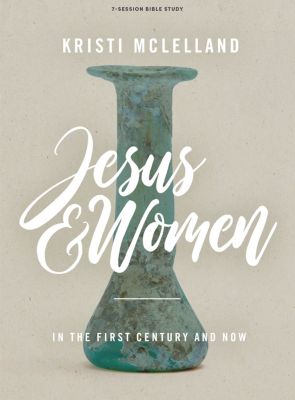In Luke 15, Jesus tells a series of three parables, perhaps the most familiar of which is The Parable of the Prodigal Son. Author and teacher Kristi McLelland shares how that parable is told differently in the Middle Eastern culture where Jesus lived and how a different title can make a profound statement about our heavenly Father.
The video is above, and the entire manuscript is below.
—-
In 2007, the Lord opened up the door for me to go study the Bible in Egypt and Israel. I tell people all the time that it was an adventure that found me. I went in a spirit of professional development. At the time, I was teaching at a local church. I was a faculty member teaching Bible at a local college, so going to study the Bible in the very land and world of the incarnation seemed like a very good idea to me.
What I didn’t know is that that study trip would radically and forever change my life, the trajectory of my heart, and the manifestation of my ministry.
For the last fourteen years, I have been teaching the Bible through its historical, cultural, linguistic, and geographic context. I function like a bridge. I love taking Western Christians over to and into the biblical world to better understand what the biblical authors meant by what they wrote and what they said.
And I want to bring you today to Luke 15. Words in red, Jesus is talking. It’s within a greater section of Scripture—Luke 9–19; it’s called the travel narrative. And it’s called that because Jesus is on His way to Jerusalem and on His way to the cross, and He knows it. So when we read anything in Luke 9–19, these are Jesus’ final days, His final words He is imparting in His own heart the most important things to His disciples and to His followers.
In Luke 15, Jesus is going to tell three stories; the last one is famous to us. We call it “The Parable of the Prodigal Son,” but when I was studying in Israel, I learned they call it something different. They actually call it “The Parable of the Running Father.” And I don’t know about you, but I would much rather read a story about a running father than a son who gets lost and has to find his way home.
Kristi, why do they call it that? You know, here in the West, we usually read the Bible and ask the question, “What does this teach me about me?” But in the Middle East, when they read the Bible, they ask a different question. They ask, “What does this teach me about God?” Who is He? What is He like? What does it mean to follow Him?
We need to be very clear about this: What Jesus is showing us in this story in Luke 15 on His way to Jerusalem and the cross, is this: The Bible is one story. It is best read and understood from beginning to end. And the story of the Bible is not a story of lost sons finding their way home. The story of the Bible is about a running Father who runs out to seek and to save lost sons and bring them home.
And while we’re at it, Jesus tells two other stories in Luke 15. We call the first one “The Parable of the Lost Sheep;” they call it “The Parable of the Good Shepherd.” Second story, we call it “The Parable of the Lost Coin;” they in the Middle East call it “The Parable of the Good Woman.”
And I don’t know about you, but if you need encouragement today, know this: The story of the Bible is not about you cleaning yourself up and carrying yourself home. What the story of the Bible is telling us is that the living God is the One who will leave His throne, He will leave the ninety-nine, He will go after the one, Jesus says, until He finds him, and then He will lovingly put him on His shoulders and bring him home.
This has changed the way I pray for my family and friends in the far country. I used to pray, “Lord, please just let them get back in church. Send a Christian their way to share the gospel.” Now I just pray, “Lord, go get them!” The Bible is all about the running Father. Will you allow yourself to be found today and brought home?


